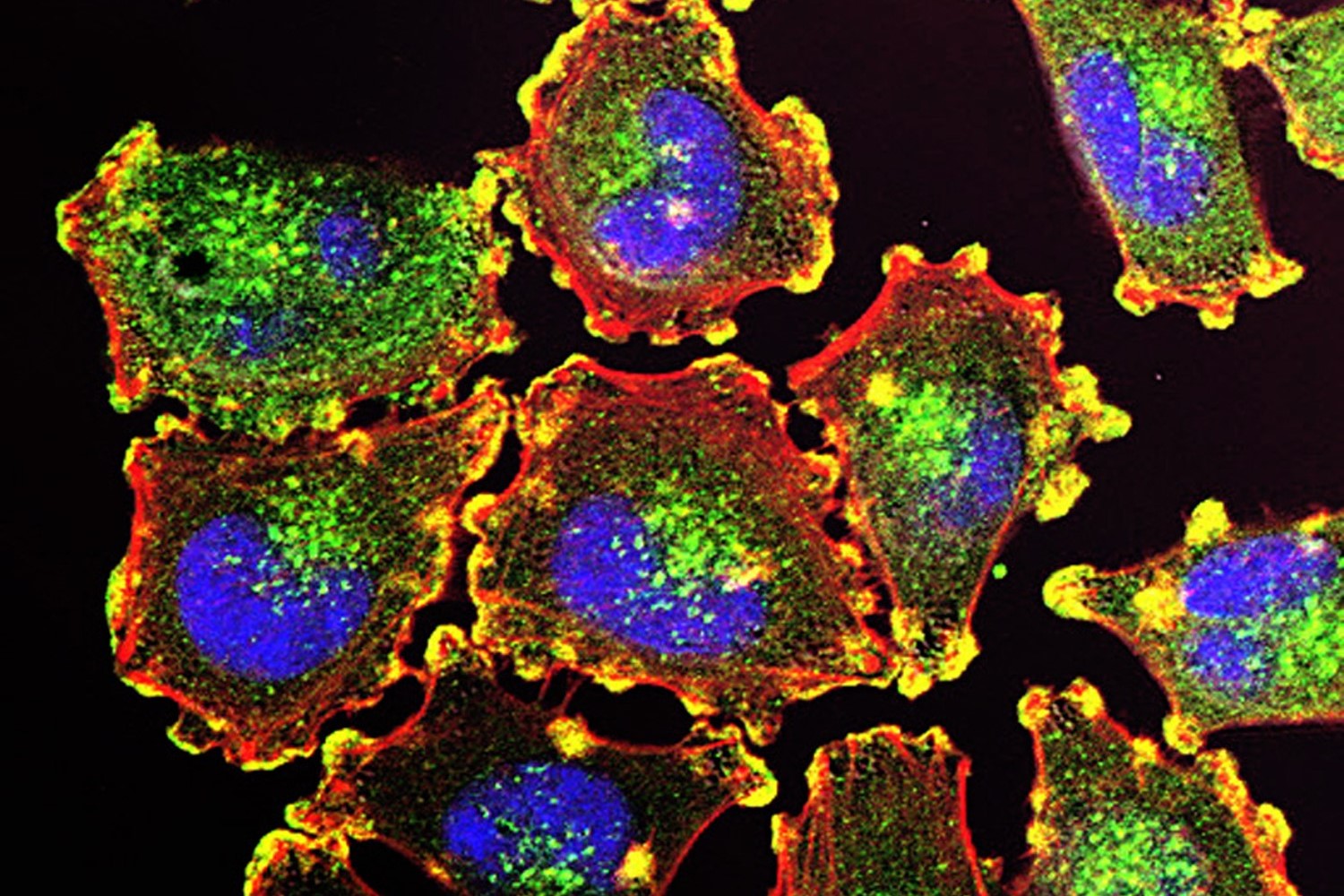
The pairing of a blockbuster Bristol Myers Squibb cancer immunotherapy with an experimental treatment from Nektar Therapeutics has failed a pivotal test in melanoma, dealing a blow to a drug research alliance started four years ago with a nearly $2 billion financial commitment from the pharmaceutical giant.

With the Rise of AI, What IP Disputes in Healthcare Are Likely to Emerge?
Munck Wilson Mandala Partner Greg Howison shared his perspective on some of the legal ramifications around AI, IP, connected devices and the data they generate, in response to emailed questions.
BMS said Monday that the independent data monitoring committee for the Phase 3 study told the company that the drug combination did not meet two main goals: helping patients live longer without the cancer worsening, and showing improvement according to a measure of the proportion of patients who have a complete or partial response to the treatment. The committee also said an interim analysis of the data showed the drug combination fell short of statistical significance in overall survival, the third primary endpoint of the study.
Nektar’s stock opened at $5 per share Monday, down nearly 53% from Friday’s closing price. BMS shares held steady.
The BMS drug, Opdivo, is a checkpoint inhibitor, a drug that blocks proteins on immune cells that keep them from recognizing cancer cells. This approach does not work for all patients, so BMS and other companies with checkpoint inhibitors have been testing various drug combinations to see if any of them can help expand this therapy’s reach to more people and more types of cancer. That was the key driver for BMS’s 2018 alliance with Nektar, a deal that paid the San Francisco-based biotech $1 billion in cash up front. In addition, BMS purchased about $850 million worth of Nektar stock at the price of $102.60 per share and agreed to up to $1.78 billion in milestone payments.
The deal called for both companies to share in clinical development of the drug combination, with BMS shouldering a larger part of the responsibility. Stephen Doberstein, Nektar’s chief research and development officer when the agreement was announced, told MedCity News at the time that his company’s drug offered the potential to make tumors that are cold, meaning they do not trigger a strong immune response, into hot ones that spark strong immune cell activity.
“We might be able to open up the benefits of immunotherapy to the majority of patients who don’t respond at all,” Doberstein said.
Nektar’s drug, bempegaldesleukin (bempeg for short), is an engineered version of interleukin-2 (IL-2), a type of protein called a cytokine that sparks the response of two types of immune cells, T cells and natural killer cells. The Nektar drug is designed to selectively activate the IL-2 pathway in these immune cells without also sparking activity from regulatory T cells that dampen the immune response. The 2018 announcement of the drug research partnership followed encouraging results from a small Phase 1/2 dose-escalation study (38 patients) testing the drug combination in melanoma, renal cell carcinoma, and non-small cell lung cancers.
The preliminary results announced Monday are from a Phase 3 study that enrolled 783 patients with advanced melanoma that had spread or could not be removed by surgery. Patients were randomly assigned to receive infusions of the BMS and Nektar drugs, or the BMS drug alone. Speaking on a conference call Monday, Nektar CEO Howard Robin described the Phase 3 results as surprising and disappointing, adding that the company needs to review the data to understand why they differed from the Phase 2 results. BMS and Nektar said that those results will be shared with the scientific community.
“The bottom line is that Opdivo essentially performed in line with efficacy expectations from prior studies and there was no added benefit from adding bempeg to Opdivo,” Robin said.
Since the drug combination showed no benefit compared to Opdivo alone, BMS and Nektar said they have decided to unblind the clinical trial. No additional analysis will be done on the overall survival clinical trial goal. The disappointing results have also led the companies to stop enrollment in a separate open-label Phase 3 study evaluating the drug combination as an adjuvant, a treatment given to keep melanoma from coming back after it has been removed by surgery.
The bempeg plus Opdivo drug pairing is also in clinical development in other types of cancer: two clinical trials in renal cell carcinoma, which is the most common type of kidney cancer, and two other studies in bladder cancer. BMS and Nektar said that those studies are continuing. Robin said preliminary data for the kidney cancer study are expected next month; bladder cancer data could follow soon after .
“Whether results from the melanoma study have any read through to the studies in renal cell carcinoma and bladder cancer remains an open question for us, and that will be answered shortly with the topline results,” he said.
But Robin said that Nektar does not believe the results in melanoma have any bearing on other drugs in the pipeline that use the same technology. Like bempeg, NKTR-358 is also designed to activate the IL-2 pathway. That drug is being evaluated in separate mid-stage clinical trials for lupus and ulcerative colitis, both studies being done in partnership with Eli Lilly. Meanwhile, NKTR-255 targets a different interleukin pathway than bempeg, and is in mid-stage testing in solid tumors and blood cancers. The blood cancer research is being done under a partnership with Johnson & Johnson subsidiary Janssen.
Robin said that Nektar ended 2021 with about $800 million in cash. The trial failure in melanoma means that Nektar will need to make changes to its operations and business structure.
“These changes will be substantial and will be difficult to undertake, but we’re preparing a plan that has the goal of establishing a minimum cash runway through the end of at least 2024 with our existing cash balance,” Robin said.
[Story updated throughout with comments from Nektar’s conference call]
Public domain image by Julio C. Valencia via the National Cancer Institute














